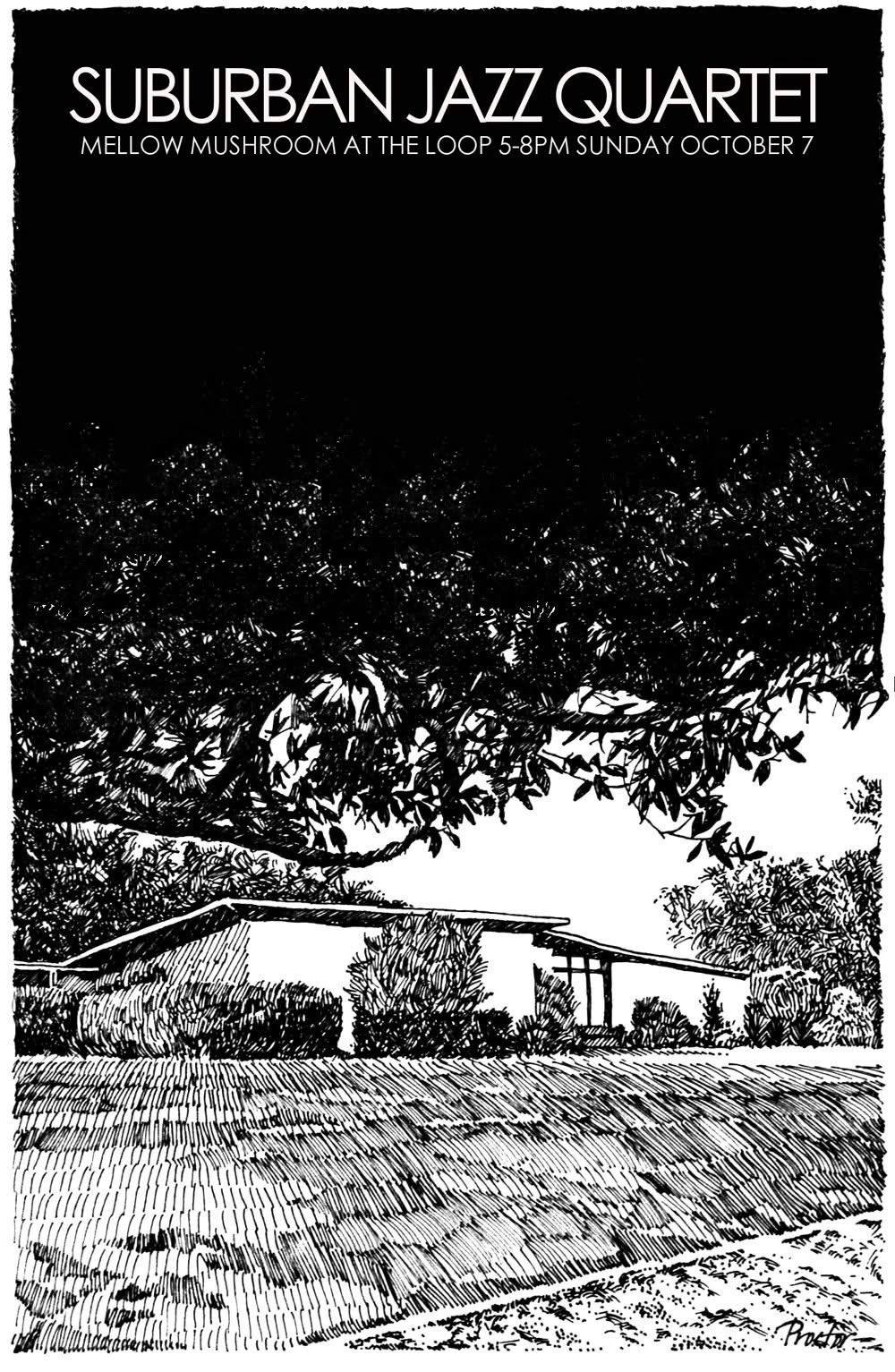
Even though he usually leaves his instruments at home, Mr. Proctor's students know he's crazy about music. A big clue is that one of their classroom's walls is filled with artfully arranged posters of rock bands like R.E.M. and Wilco alongside blues greats like Muddy Waters and Little Milton.
The collage of colorful images serves to illustrate some of the lessons he teaches in his class on Southern culture at McGill-Toolen Catholic High School. While many in our area know him as the monster musician that's long been turning heads on vocals, guitar and mandolin, his teen-aged students can attest to his knowledge and passion in the areas of American history and social studies.
"Some of them are music related, but others are from arts and literature, or maybe they're historical or relate to the natural history of the South," Phil says of the images on the wall. "They are mostly things that relate to what we cover in the Southern culture class, and most of them are things that I like, too."
A native of Huntsville, Phil studied art and history at the University of Montevallo, where he also played in rock bands and was fortunate enough to have met his future wife, Shelly, who was a native of Mobile. For his first few years in our area, he worked in retail at Peaches Records & Tapes until he heard that McGill-Toolen needed substitute teachers.
Phil had long been drawn toward the visual arts, including photography, and history had also become a captivating interest.
"It really started blossoming when I was doing my own genealogy," he says. "Then, I could draw some parallels, like what my grandfather was doing during the Spanish-American War. That made history a lot more interesting to me because I had a personal connection."
Soon he found himself leaving early for band gigs so he could take the back roads to catch glimpses of how things had been. As a busy professional musician away from the classroom, it's something he still tends to do when he has the time.
After subbing for just a few months at McGill-Toolen, he was hired for a full-time position. He then took advantage of an incentive program in which his new employer paid for half the tuition as he went to school at night at Spring Hill College to earn his master's degree. At the time, he was also teaching guitar lessons part-time at West Mobile Music, which gives you more insight into his work ethic.
But people who follow the live music scene already realize that Phil is one of the hardest-working musicians in our midst. For a time, he was doing more than 200 performances a year (yes, while also teaching school). In addition, he exercised his graphic arts skills by creating poster art for most of them (many of which are displayed on his website, philproctor.net).

He's cut back on gigs in recent years, but his slower pace still seems dizzying. Besides playing once a week at Callaghan's with the popular Phil & Foster, he does frequent solo performances and plays in numerous other configurations, including the Marlow Boys and as a nimble and trusty fill-in with Rollin' in the Hay. In previous years, he also performed in the area with such acts as Phil & Walon, Daddy Longlegs, the Dog River Boys, the Deluxe Trio, Suburban Jazz Quartet and the Mobile Big Band Society.

"It's a lot less than it was, but it's still well over a hundred gigs a year," Phil says. "I'd say that in the year or two leading up to COVID, I was playing 220 gigs a year. It was crazy. Now I probably average 10 to 12 a month."
He says the shutdowns related to the pandemic made him realize that he enjoyed having more time for other pursuits, including spending quality leisure time with Shelly and their three children: twin sons Jack and Sam, who are 29, and their younger sister, Maggie, who is 22. He became more selective of what kinds of gigs he'd take, rather than accepting most of what came his way.
Phil gets lots of offers because he's so dang good. He is a multiple repeat winner of the Lagniappe publication's annual Nappie Award in the category of Best Guitar Player (and also for Coolest High School Teacher, by the way). He is quick to deflect the acclaim, saying it's more or less a popularity contest, but other top musicians know that he's quite deserving. They admire him as being incredibly skillful in a deep range of styles.

As a teacher, Phil has helped to shape the lives of several generations of students. He hopes to spark the same kind of enthusiasm he experienced years ago when he was tracing his own family roots.

In his elective class on Southern culture, he recently tasked his roomful of juniors and seniors with coming up with marketing ideas for farm commodities. It was part of their studies on agriculture to help them understand how the South became what it is today. Few, if any, of the students were familiar with the once-iconic "Got Milk?" advertising campaign he used as an example to get them started.
It also served to illustrate the kinds of challenges he faces when relating to his young students as their age divide widens.
"I like to describe it as a Venn diagram," Phil says. "When I started teaching, my circle and the students' circle overlapped a good bit, and now they just barely touch every now and then. I just try to stop making cultural references and then being amazed that they don't know who the Beatles are or something like that. I get it and I'm over that. They may not know how to tell time with an analog clock, but I don't beat them over the head about it because we hardly use them anymore, anyway." He pauses, then adds: "I never learned how to hitch up a team of mules, either, so I don't think I can fault them for not knowing how to read an analog clock."
Next up in the class on Southern culture was a series on the blues and lessons on how it's basically a cornerstone of modern American music. This is the one time during the school year that gives Mr. Proctor a legitimate reason to bring a guitar to school to give his students an eye-opening, hands-on lesson they probably won't forget.



























